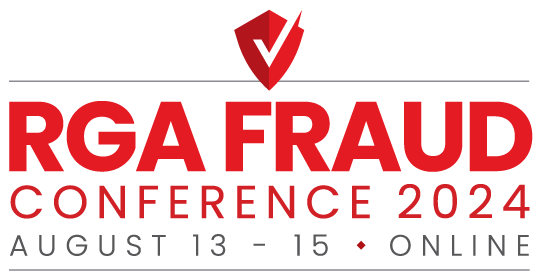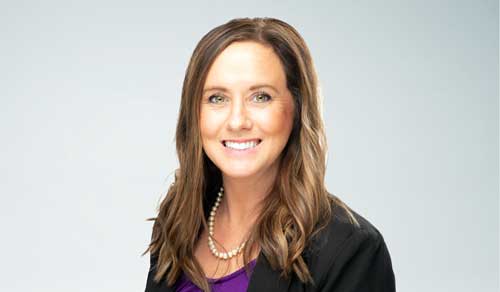Fraud has evolved into a sophisticated and pervasive threat, impacting individuals, businesses, and governments worldwide.
Recently, RGA hosted its 11th annual fraud conference, where thousands of insurance professionals joined virtually to hear industry leaders, law enforcement officials, and fraud experts share their insights and strategies for combatting this ever-evolving menace. Below are some of the key takeaways and actionable items.
Fraud 101: Theories, Triangles, Statistics, and the Importance of Professional Skepticism
Presented by: Phil Benvenuti, Vice President - Internal Audit, Pegasystems
Summarized by: Lawrence Ryan, Vice President of Group Re Operations, RGA
Key Insight
It is critically important to maintain professional skepticism during fraud investigations, including cultivating a questioning mindset and critically assessing all evidence.
Top Action Item
Insurers should always "trust, but verify," highlighting that verification is the key to gathering sufficient evidence while also consistently maintaining objectivity.
Favorite Quote
When gathering information about a claim involving possible fraud, “Don’t be satisfied until you are satisfied.”
Connecting the (Data) Dots for a Clearer View on Fraud
Presented by: John Chalfant, Senior Manager of Product Management, LexisNexis Risk Solutions
Summarized by: Jennifer Johnson, Vice President, Underwriting Innovation, RGA
Key Insight
It is vital to keep uniformity across the data sets to ensure better insights. It should be noted that problems can occur when data sets are not cleansed, linked, and maintained. The benefits of quality management include reduced costs, time savings, lower security risks, transformational improvements, complete reviews, and universal identification.
Top Action Item
Insurers should monitor their data sets continually. Review claims first to determine what data is available, remembering that a single source is insufficient to overcome inaccuracies.
Favorite Quote
“Fraud solutions are only as good as the data going into them.”
Defending Against Privacy and Data Breaches: Insights from 20 Years in the US Secret Service
Presented by: Timothy Reboulet, Senior Special Agent (retired), United States Secret Service; Director of Safety and Security, Ladue School District (St. Louis, MO)
Summarized by: Jennifer Johnson, Vice President, Underwriting Innovation, RGA
Key Insight
BlackCat/ransomware generally favors phishing emails to gain access to the target environment. It generally takes 277 days to identify and contain a data breach; meanwhile, ransomware hackers can obtain data in as quickly as five hours and can encrypt an entire system in less than four days. The average total cost of a data breach in the financial sector, including downtime and legal proceedings, is $5.72 million.
Top Action Item
The best security practice to thwart the threat of fraud is to implement the five D’s: detect, deny, delay, deter, and defend. Insurers should encourage consumers to utilize multifactor authentication when available and regularly update passwords at least once per quarter.
Favorite Quote
“Never negotiate with or pay terrorists, and these ransomware attackers are terrorists.”
Identifying Potential Fraud: Investigative Tips, Tools, and Techniques
Presented by: Francis X. Sztuk, Senior Vice President, Investigative Services, Delta Group
Summarized by: Danielle Storts, Director and Team Manager, US Individual Life, RGA
Key Insight
Fraud/unethical behavior has become more acceptable over time to a striking degree. The percentage of people who thought certain unethical behavior was acceptable increased 6-9% from 2007-2017, depending on the category. The largest change occurred in underwriting fraud, where 91% of people thought it was unacceptable in 2007, while only 82% felt that way 10 years later.
Top Action Item
It is important to remember that, throughout the insurance process, every touchpoint is a time to conduct an interview/Q&A session.
Favorite Quote
"The decline in social ethics over the last 30-40 years makes people much more apt to commit fraud than ever before."
Claims Fraud, The Global Picture: Insights from RGA’s Global Fraud Survey
Presented and summarized by: Philip Thomas, Executive Director, Global Claims, Governance & Reporting, RGA
Key Insight
It was interesting to find that claims fraud exists, to varying degrees, in all markets, and to discover the lengths to which insurers are going to identify and prevent fraud, including the application of expert systems and machine learning. Although the need for robust fraud prevention is clear, insurers also have a responsibility of working with policyholders, including the time associated with settling claims.
Top Action Item
Insurers need to review current claims fraud processes to identify areas where improvement can be made and to determine what technology investments may be needed to achieve the best outcome.
Favorite Quote
“The fraudsters aren’t going to stop, so we have to do what we can to keep pace with them.”










